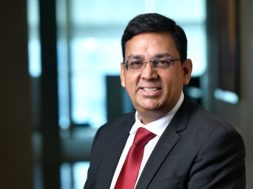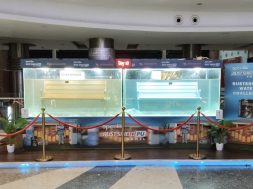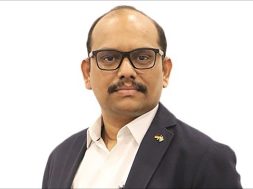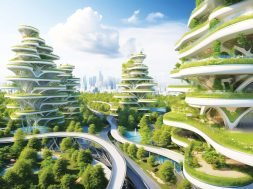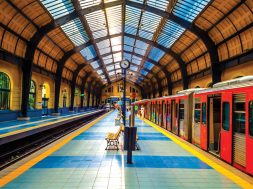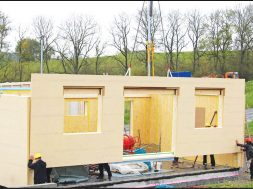Mission 100
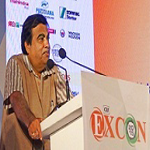
Confident at achieving the target of building 30 km road per day by March 2016, the Road Transport and Highways Minister Nitin Gadkari wants to build a whopping 100 km roads a day.
“When we started, it (road building) was 2 km per day, today it is 18 km per day and by March-end it will be 30 km a day. My unofficial target is to construct 100 km a day by next year,” Gadkari announced while delivering his inaugural address at Excon 2015.
“American roads are not good because America is rich. America is rich because American roads are good,” the Minister quoted former American President John F. Kennedy while talking on the dire need of accelerating road building in India. However, he pointed out that the existence of greater ‘pendency’ within the system is curtailing the desired growth.
“My problem is not resources but my problem is my system. Everywhere there is the kind of pendency within the system. How I can make my system faster is the most challenging thing,” he said.
He assured that finance will not be a constraint in the road of surface infrastructure development. “Even foreign banks are ready to finance highways projects in India. An overseas bank recently offered ` 2 lakh crore long-term loan at 0.5 per cent interest per annum to the government,” he informed.
Gadkari said most of the 380 projects that were stuck due to problems with land acquisition, forest and environmental clearances, shifting of utilities and litigation at the time he took over the reins of the department have been rolled out.
“Of the 380 national highways projects across the country, 44 were terminated for failure to take-off and 95 per cent of them were revived by solving problems faced by their contractors,” he said.
The minister has underlined the importance of adopting advanced technologies for road development. Citing the example of Jamshedpur, he urged roads developers to utilise waste material for road construction. He also encouraged road equipment manufacturers to bring in superior soil stabilisation technologies in meeting the increasing need of aggregates for road development.
While addressing the construction equipment manufacturers, he advised the use of biodiesel or ethanol instead of diesel to diminish air pollution. He urged the manufacturers to develop biodiesel- or ethanol-based vehicles so as to reduce carbon footprint and safeguard the environment.
Though Gadkari has time and again pushed for private sector’s participation in the country’s infrastructure development, he criticised the decision of cement manufacturers as “not good business” because they announced raise in cement prices immediately after the government’s decision to use concrete to build its new road network.
He warned cement manufacturing companies stating, “If cement industry is going to increase the rate, then I will allow imports from China. You take reasonable advantages…if you try to take advantage of the situation, then I also understand how to make it right.”
Gadkari also stressed on the need to develop 111 important rivers in the country for inland waterways. He believes that transportation through inland waterways has much higher economic potential and viability than roads or rail.
“In China 48 per cent of goods and passenger traffic is on water. In Korea and Japan, 43 and 44 per cent of goods and passenger traffic is on water. In European countries more than 40 per cent of goods and passenger traffic is on water whereas in India, it is only 3.5 per cent,” he said.
Explaining the economic advantages of water transportation in reducing the logistics cost, he said, “Going by road, the cost for example is ` 1.50 per km; by railway, it is one rupee and going by water, it is only 25 paise.”
Work on 30 water ports is already in progress. “We have already started the work on Ganga, from Varanasi to Haldia, which is expected to commence commercial run within a year. We will set up 50 small water ports,” he informed.
Gadkari informed that his government has set a target of 2 per cent contribution to the national GDP growth by the roads and highways sector within the next two years. He said, “Our target is to expand national highways to 150,000 km from 90,000 km across the country to ensure the sector contributes at least two per cent to the GDP growth.”
| Upgradation of existing Highways to Express Highways |
|---|
| The government had earlier approved a plan for constructing 1,000 km of Expressways under NHDP Phase-VI at a cost of Rs. 16,680 crore on DBFOT basis. Following stretches have been approved for upgradation of expressways: |
| • 249 km length of Delhi-Chandigarh section on NH-1 and NH-22 |
| • 334 km length of Bangalore-Chennai section of NH-4 |
| • 261 km length of Delhi-Jaipur section of NH-8 |
| • 277 km length of Kolkata-Dhandbad section of NH-2 |
| • 200 km length of Delhi-Agra section of NH-2 |
| • 400 km length of Vadodara-Mumbai corridor |
| • 66 km length of Delhi-Meerut expressway section of NH-24 & NH-58. |
| Advanced technology in road building |
|---|
| Central Road Research Institute (CRRI) has developed several technologies for construction and maintenance of Indian roads such as cold mix and warm mix technologies for bituminous roads, use of waste plastic, industrial waste (copper slag, zinc slag, steel slag etc.), use of mastic asphalt, micro-surfacing, design and specifications for construction and maintenance of roads and bridges, procedures for road safety measures, use of fly ash in road embankment, methods for maintenance of cement concrete roads etc. |
| Recently, National Highway Authority of India (NHAI) has initiated steps for use of space technology for preparation of detailed project reports, monitoring of construction and road asset management. NHAI proposes signing MoU with Indian Space Research Organisation (ISRO) and North East Centre for Technology Application and Research (NECTAR) for use of space technology in aforesaid areas. |
———————-
“My problem is not resources but my problem is my system… How I can make my system faster is the most challenging thing.”
10
Cookie Consent
We use cookies to personalize your experience. By continuing to visit this website you agree to our Terms & Conditions, Privacy Policy and Cookie Policy.

